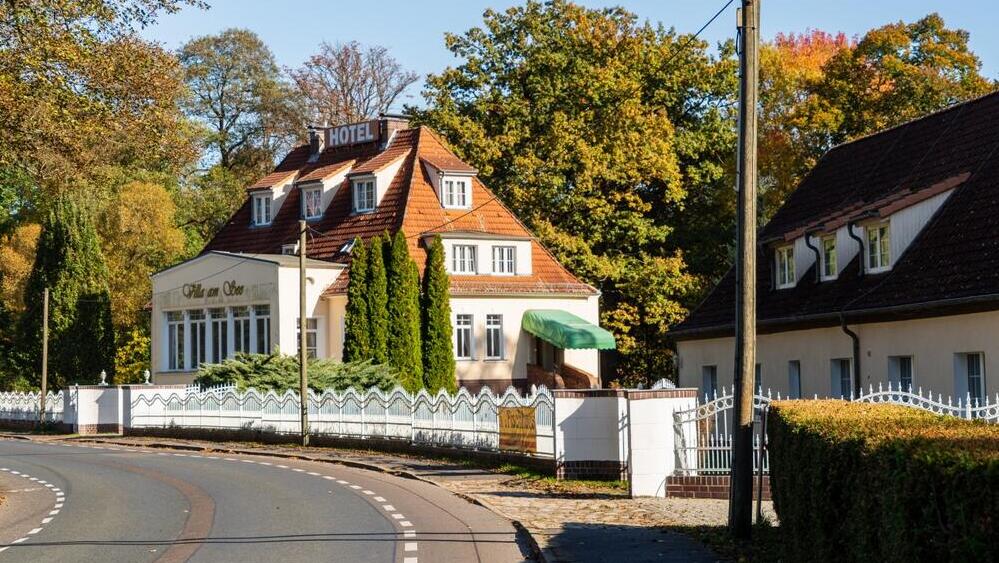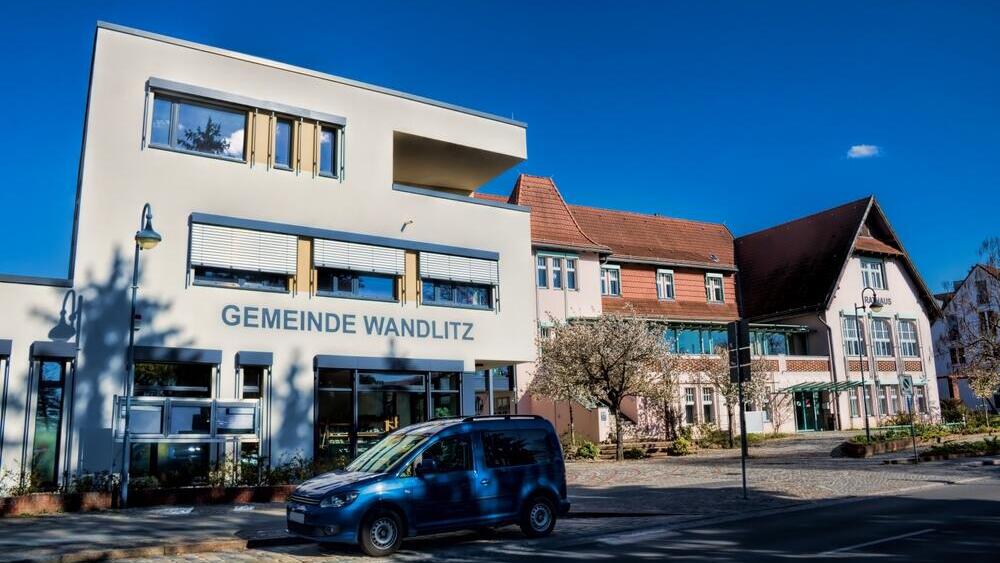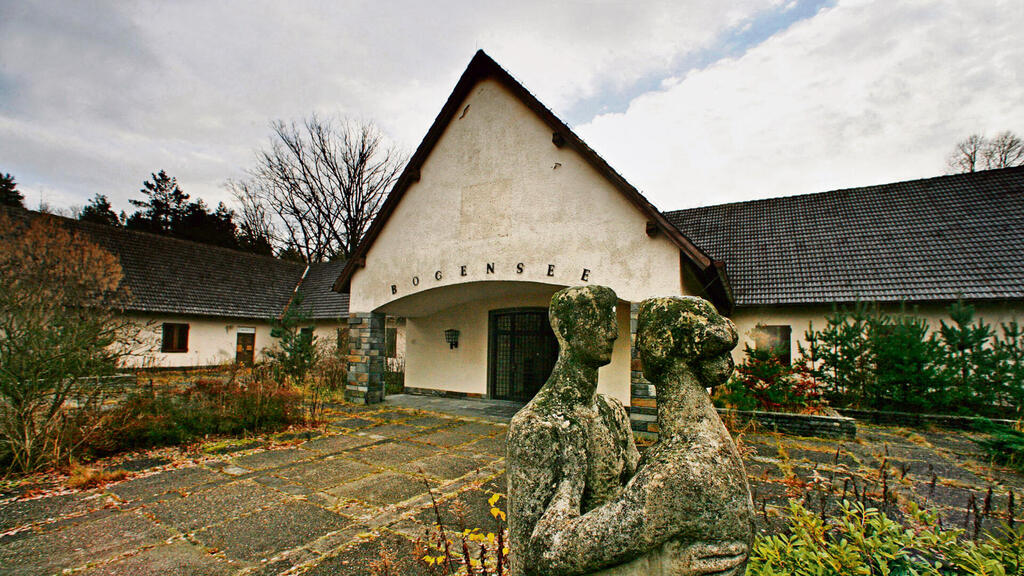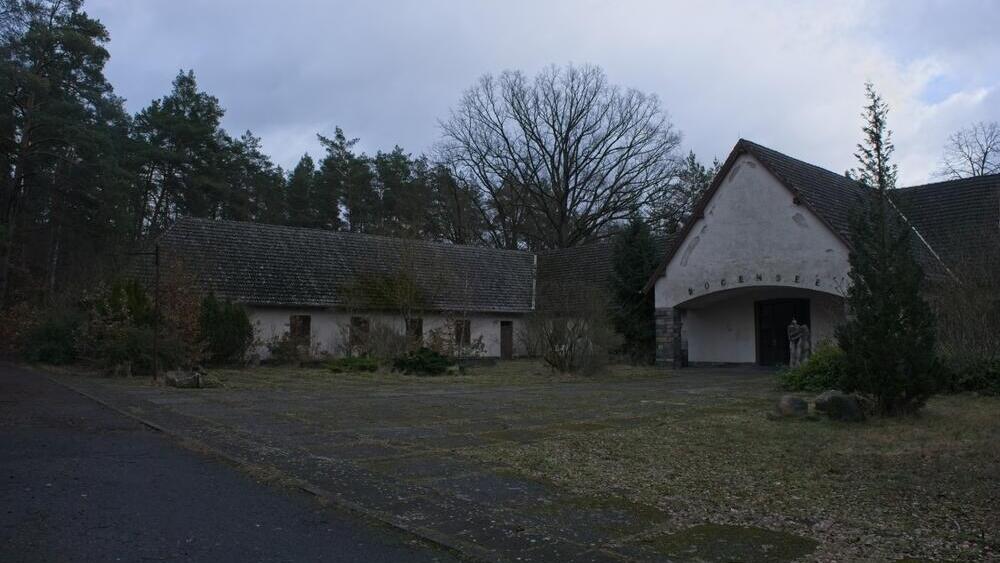Getting your Trinity Audio player ready...
Leipzig's Federal Administrative Court has ruled that an 84-year-old woman and her son must return a home in Wandlitz where their relatives had lived since 1939 to its rightful Jewish owners.
The property had belonged to two Jewish women who were forced out of their home and compelled to sell it at a fraction of its market value at the time. Rejecting the family’s appeal, the court ruled the sale was "forced."
The conflict has spanned nearly a decade. In 2015, a special committee informed the family via an official government letter that the house, located about 25 kilometers (15 miles) north of Berlin, would be returned to its original owners.
The family appealed the decision, but the final ruling has now been made. The property will be transferred to the Claims Conference, which pursues cases without direct heirs and uses the proceeds to aid Holocaust survivors.
The case is likely one of the last in the state of Brandenburg concerning property restitution and compensation for economic injustices during the Nazi persecutions.
The legislation addressing compensation and land disputes related to property once owned by Jews was enacted by East Germany's final government and approved in 1990 after the reunification. In the West, such laws and committees existed immediately after the war.
The house was originally purchased by a Jewish family in 1932 and served as a vacation home for Jewish children. In 1939, the Nazis forced Alice Donat and Helena Lindenbaum to sell the property for a paltry sum. A German family, whose descendants still reside in the house, then bought it.
Since both women were murdered in the Auschwitz concentration camp, the Claims Conference brought the case to court as early as 1992 to determine the legitimate ownership of the house. The transfer of ownership took place only now — and the generational injustice that took place by successive illegal owners — reached its conclusion.
“I feel like my world has collapsed on me,” said 84-year-old Gabriele Lieske, whose grandfather, textile manufacturer Felix Moeglin, bought the house and adjacent plots (158, 163 and 164) from the Jewish women. “I’ve spent my entire life in this house, caring for my parents and children.”
“We’ve been left with nothing,” added her 61-year-old son Thomas. “We have nowhere to go. I’ll require welfare and my mother won’t survive the move.”
“My grandfather who bought the house died that same year and I was three years old,” Gabrielle added. “This matter was never discussed at home.” Thomas, in a provocative statement, added, “I feel like we’re losing the war for the third time — once at the war’s end, then with the fall of East Germany and now as we’re losing our home. We’re paying the price for two dictatorships.”
During the trial, Gabrielle told her lawyer, “I feel as though I murdered the Jews.” When a Claims Conference representative said they were only doing their job, she reportedly replied, “That’s what they said back then, too.”
A local real estate agent valued the home at €1.5 million ($1.59 million). The judge proposed a compromise, allowing the current occupants to purchase the house for €400,000 ($423,000), but they only had €50,000 ($53,000) and the offer fell through.
The 1939 sales contract explicitly identifies the sellers as Jewish, as dictated by the Nuremberg Laws, while the buyer declared himself Aryan. The first page holds a Nazi swastika and the contract ends with “Heil Hitler.”
The home’s connection to its Jewish owners was uncovered incidentally when Emanuel Berger, a child adopted by Donat after the Nazi rise to power, wrote about it in his memoir "Childhood Memories of the Holocaust." The house is located just a few kilometers from the holiday home of Nazi propaganda minister Joseph Goebbels.
German media coverage of the case has been grossly distorted, portraying the Jews as greedy and evicting an unfortunate German family. Missing from these accounts is the story of Helena Lindenbaum’s husband, Karl, who fought for Germany in World War I, earned the Iron Cross for his service and died penniless alongside his wife in a Nazi concentration camp.
Appraisers estimate that the total value of property seized from Jews in East Germany was approximately €20 billion ($21.2 billion). The Claims Conference has filed 16,800 restitution claims in East Germany, returning 4,600 properties to families of the original owners. The organization has raised $2.4 billion from its restitution efforts.
Get the Ynetnews app on your smartphone: Google Play: https://bit.ly/4eJ37pE | Apple App Store: https://bit.ly/3ZL7iNv
The Claims Conference has hinted it won’t leave an 84-year-old woman homeless, partly out of compassion and partly due to a fact uncovered during the trial: Felix Moeglin, who bought the house, had a brother named Wilhelm.
Wilhelm was married to a Jewish woman, Emma Arenson, who was murdered in 1942. Throughout much of the war, Felix Moeglin hid Wilhelm’s daughters, Margaret and Irene, in the house he bought.





